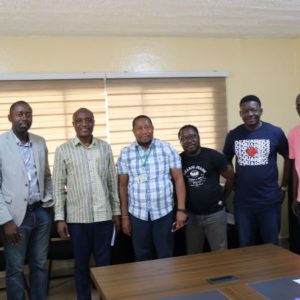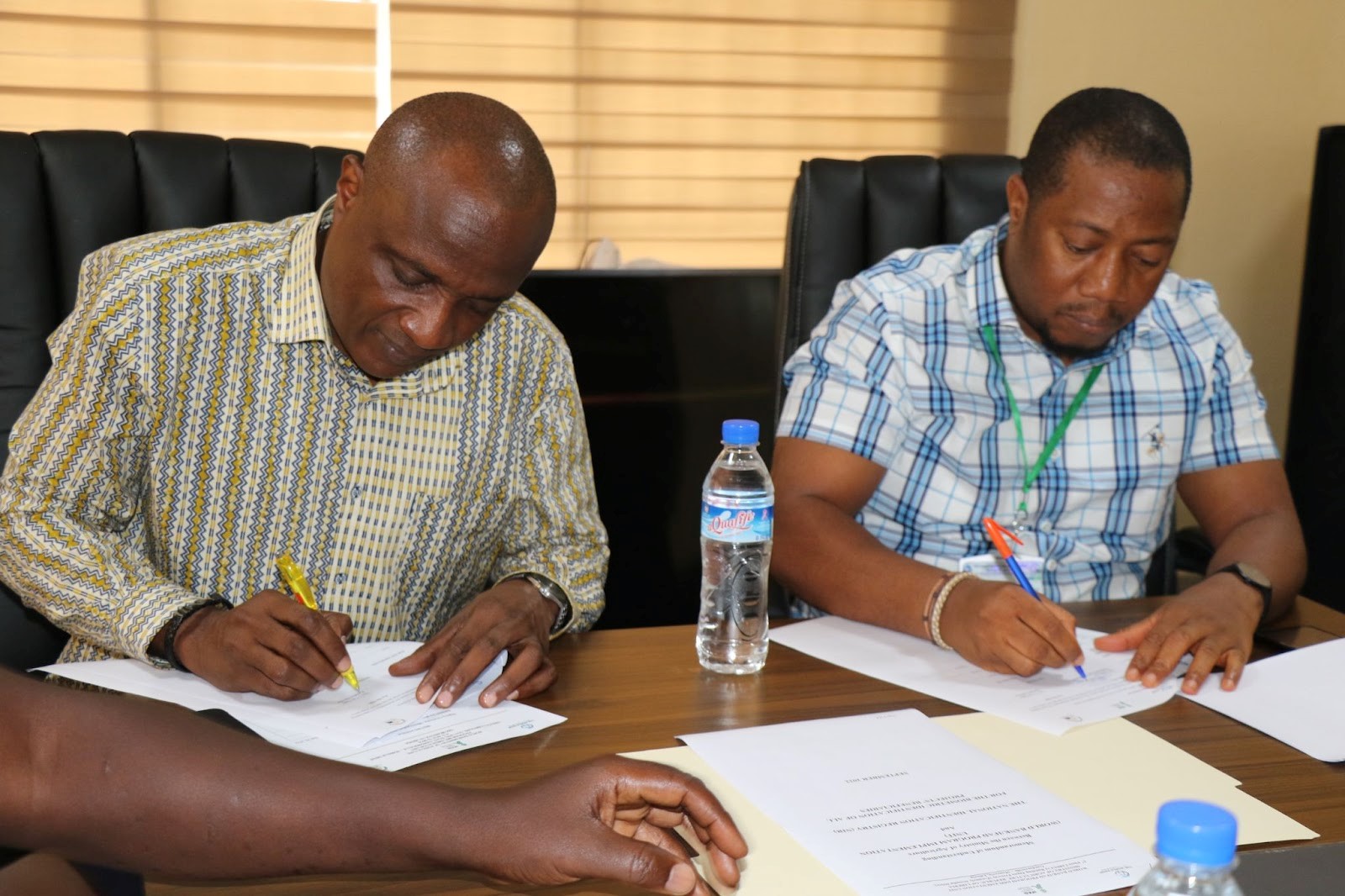By Augustine Octavius, augustineoctavius@gmail.com
The Project Implementation Unit at the Ministry of Agriculture and the National Identification Registry have signed a Memorandum of Understanding to register 30,000 smallholder farmers in various parts in Liberia.
As Augustine Octavius reports, the smallholder farmers are beneficiaries of the Smallholder Agriculture Transformation and Agribusiness Revitalization Project (STAR- P) and the Rural Economic Transformation Project (RETRAP), a World Bank and International Funding for Agriculture Development (IFAD) supported projects of the ministry.
Gala Toto, National Project Coordinator of the World Bank PIU (Right) and J. TiahNagbe, Executive Director of the NIR signed an MOU for their respective institutions.
According to the agreement, the NIR will register the first 10,000 beneficiaries early October and continue the process later this year.
The registration of project beneficiaries using the national biometric identification system is to establish a national registry for easy identification to provide training, farming inputs and others, as well as to conduct follow up on the activities of the project’s beneficiaries.
The memorandum of understanding was signed by Gala Toto, the National Coordinator of the Project Implementation Unit at the Ministry of Agriculture, signed on behalf of his entity; while, J. Teah Nagbe, the Executive Director at the National Identification Registry penned the MOU on behalf of his institution
Speaking shortly after the signing ceremony, the National Project Coordinator of the World Bank PIU, Gala Toto, said the MOU will improve project planning and implementation, as well as enhance key opportunities for the farmers.
“When we have a unique identification for these farmers that we support,” he went on, “we will be able to locate them and provide training, inputs and other services that we do as part of the implementation of these projects.”
“This is an impactful activity for us because we can now reduce the practice of getting one group of farmers, while others are left behind”, he said.
Toto disclosed that a telecommunication provider with a mobile financing platform that the projects will use to remit funds to its beneficiaries has set this as a key requirement to identify the farmers they will work with and as such, the signing of the MOU complimented ongoing efforts to ensure that the support being provided gets to the right beneficiaries.

STAR-P, and RETRAP staff pose after signing the MOU with the National Identification Registry
For his part, the Executive Director of the NIR, J. Tiah Nagbe said the move was in the right direction as it supports quality service delivery to the right people.
“Identification systems are like virtual fences that allow you to target and disaggregate, from a large group of people, that section of the group you want to serve.”
Nagbe added that the NIR will enable the farmers to do this very efficiently to serve the people better, at a lower cost and they can avoid providing the same service to the same persons who may be defrauding the system.
“We are happy that you are seeing the value in migrating from the old to new that will help you in your delivery,” he said.
The event was attended by Operations Managers, Stephen Marvie of the STAR Project and TarnueJeke of RETRAP. Sylvester Taylor, Financial Management Advisor to the Minister of Agriculture, Eddie Eesiah of the NIR and Roosevelt Reeves of the RETRAP project.
With funding from the World Bank and the International Funds for Agricultural Development (IFAD), the STAR project is focused on providing innovative agricultural financing institutional capacity building and strengthening the enabling environment for farmers, agribusinesses, state, and non-state actors, as well as enhancing productivity and competitiveness.
The RETRAP project seeks to develop or enhance competitiveness and market access through productive alliances as well as strengthening agri-marketing and engaging in road infrastructure investments.
Both STAR-P and RETRAP are being implemented in the 15 counties with a combined target of 98,000 beneficiaries in the cassava, oil palm, rice, rubber, piggery, poultry and vegetable value chains.
The STAR-P and the RETRAP had made several interventions over the past years including the delivery of farm machines, seeds, fertilizers and other farming inputs to hundreds of beneficiaries to help transition them from subsistence farming to commercialization.
To promote access to finance, the Ministry of Agriculture Projects recently approved 23 smallholder farmers and agribusinesses to access grants, under its Liberia Agriculture Commercialization Fund (LACF).
The LACF has been set up under component two of both projects to ensure that smallholder farmers and other members of the value chains to increase agricultural productivity and commercialization.

